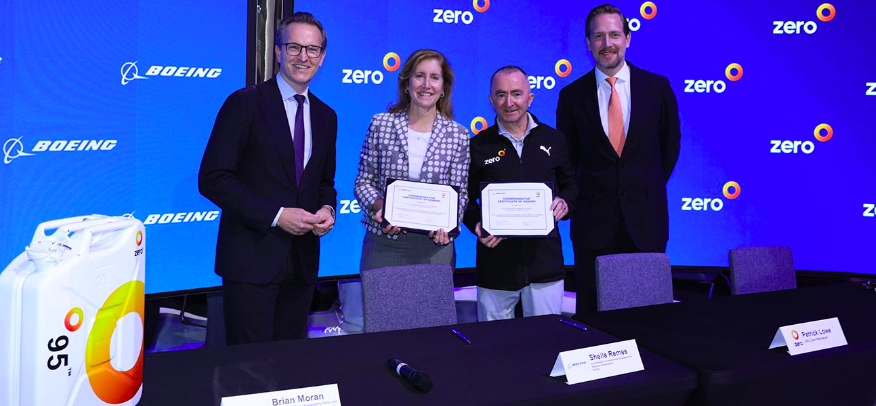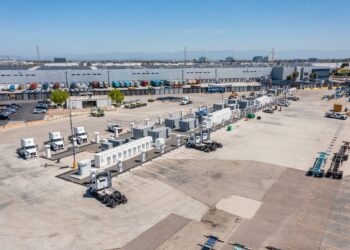Boeing has revealed it is working with Zero Petroleum in the UK to research and produce sustainable aircraft fuel as part of its worldwide drive to reduce emissions
Boeing and Zero Petroleum have announced a collaboration for testing and analyzing the next generation of technologies to accelerate the supply of sustainable aviation fuels (SAF). For Boeing, this represents another investment in developing SAF globally to reduce aviation’s lifecycle emissions and support the industry’s goal of net zero.
Zero’s technology produces SAF from air and water. The hydrocarbon fuel obtains carbon from direct air capture and hydrogen from water electrolysis. This ‘power to liquid’ process has the potential to significantly reduce emissions across the lifecycle, provided there is an abundance of renewable electricity.
Under the agreement, Boeing will jointly establish a testing program for Zero’s SAF at the University of Sheffield’s Energy Innovation Centre (EIC) and its SAF research facility. Boeing is a founding member of the Centre.
Since 2022, Boeing has purchased 7.6 million gallons of SAF for its U.S. commercial airplane operations.
“SAF is our industry’s biggest lever in reducing emissions in the next 30 years, but we need more of it to realize those reductions,” said Sheila Remes, Boeing vice president of Environmental Sustainability. “Working with innovators around the world such as Zero is crucial as we collaborate to develop new, sustainable pathways to produce and scale-up SAF.”
The Oxfordshire, UK-based energy company will benefit from Boeing’s initiative to help innovative fuel producers test, mature and scale SAF utilizing its collaboration with the EIC and Boeing’s global SAF and aerospace expertise.
The announcement comes just a few weeks after Zero signed an agreement with ADNOC to explore potential opportunities to develop a new plant in the United Arab Emirates. The plant would focus on commercial scale production using Zero’s breakthrough fuel technology.
“The aviation industry needs to move quickly to meet upcoming mandates for de-fossilization and synthetic fuels provide the only fully scalable solution,” said Paddy Lowe, CEO of Zero, speaking after the Boeing agreement.
“We have already developed and tested our 100% drop-in synthetic jet fuel and collaborating with Boeing will now enable us to accelerate the qualification process and put us on course for commercial delivery by 2026. Our collaboration with Boeing sets an industry precedent for the recognition and support for synthetic fuels in the global pivot to sustainable solutions.”
The agreement follows Boeing’s work to help scale SAF globally through industry partnerships and policy advocacy, investments in product compatibility work and Boeing’s own fuel use. Recent Boeing global initiatives to advance SAF include:
An agreement with Masdar, the Abu Dhabi-based renewable energy company, to advance and support the development and adoption of SAF policies in the UAE and beyond.
A collaboration with the Roundtable on Sustainable Biomaterials to explore SAF feedstock opportunities in Ethiopia, South Africa and Brazil.
Joining the ACT FOR SKY organization in Japan to work on the commercialization, promotion and expansion of domestically produced SAF.
A joint study with Avolon, ORIX Aviation, SkyNRG and SFS Ireland on the feasibility of SAF production in Ireland.
Mobilizing its supply chain to complete the testing necessary to ensure Boeing commercial airplanes are 100% compatible by 2030.
Joining the World Energy Council to drive sustainable energy transitions.
SAF certified for use today can reduce lifecycle CO2 up to 85% and holds the greatest potential to reduce aviation’s emissions over the next 30 years. However, the key challenges to greater use of SAF are the limited supply and high cost. Current use of SAF represents 0.1% of global jet fuel demand.





